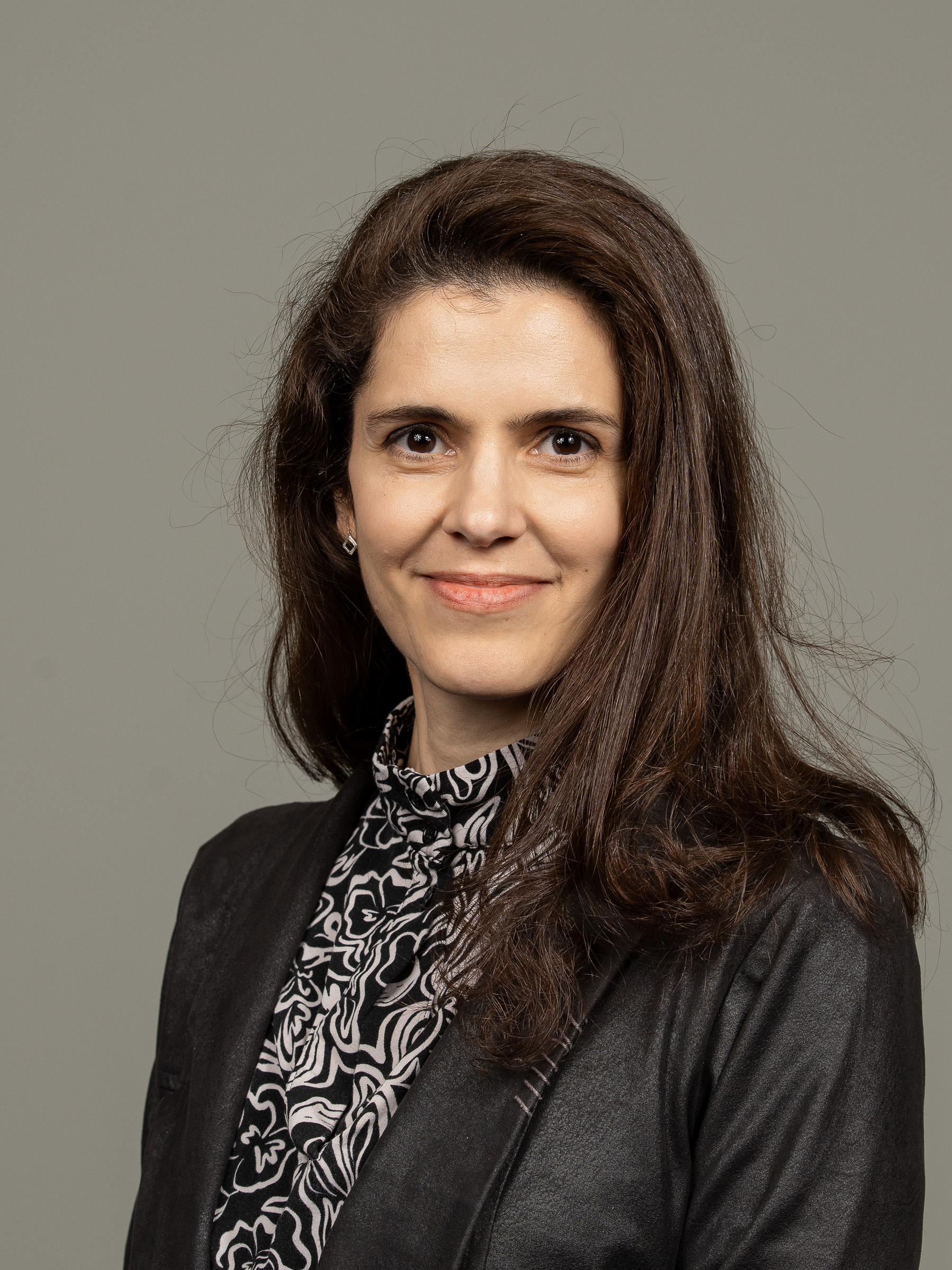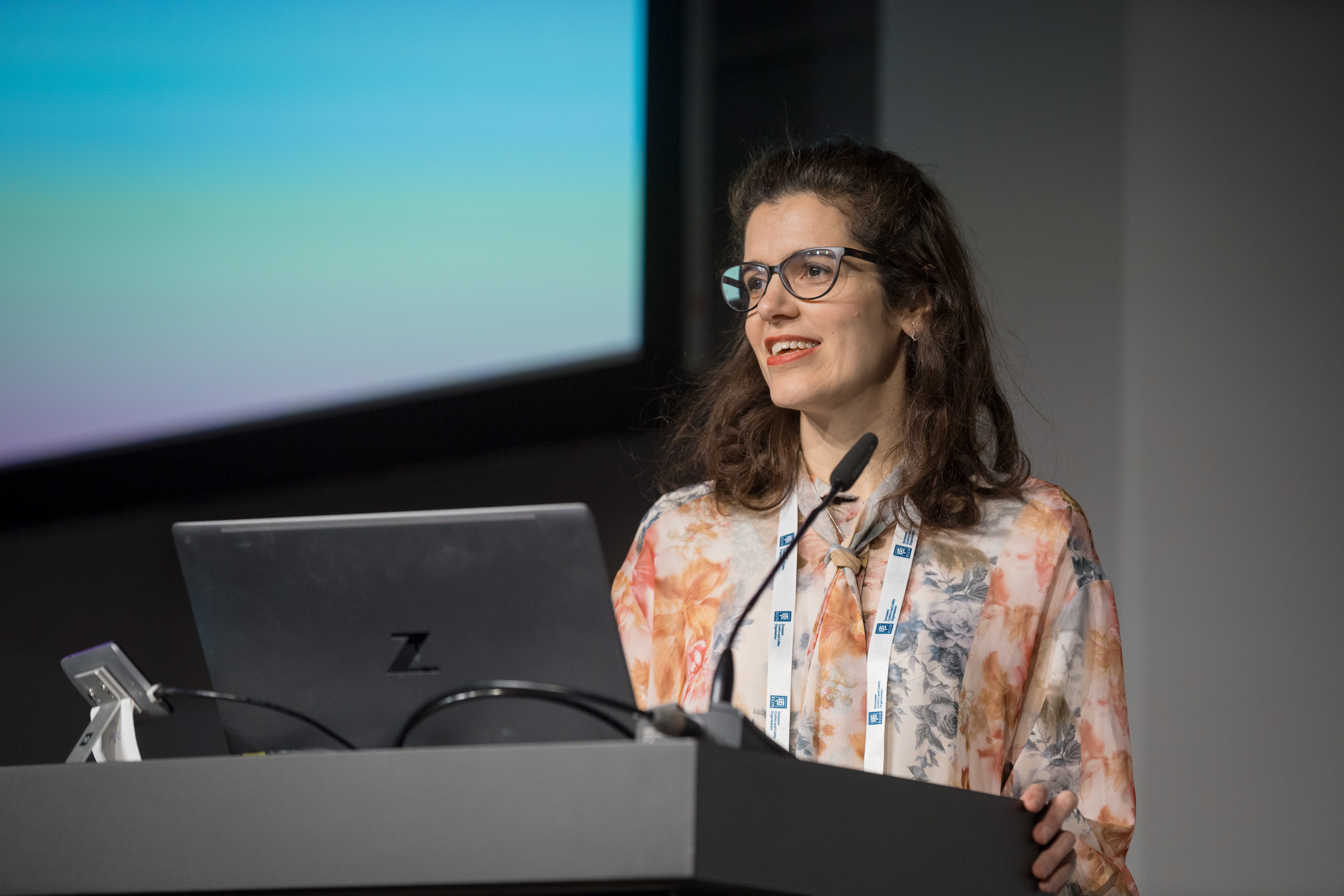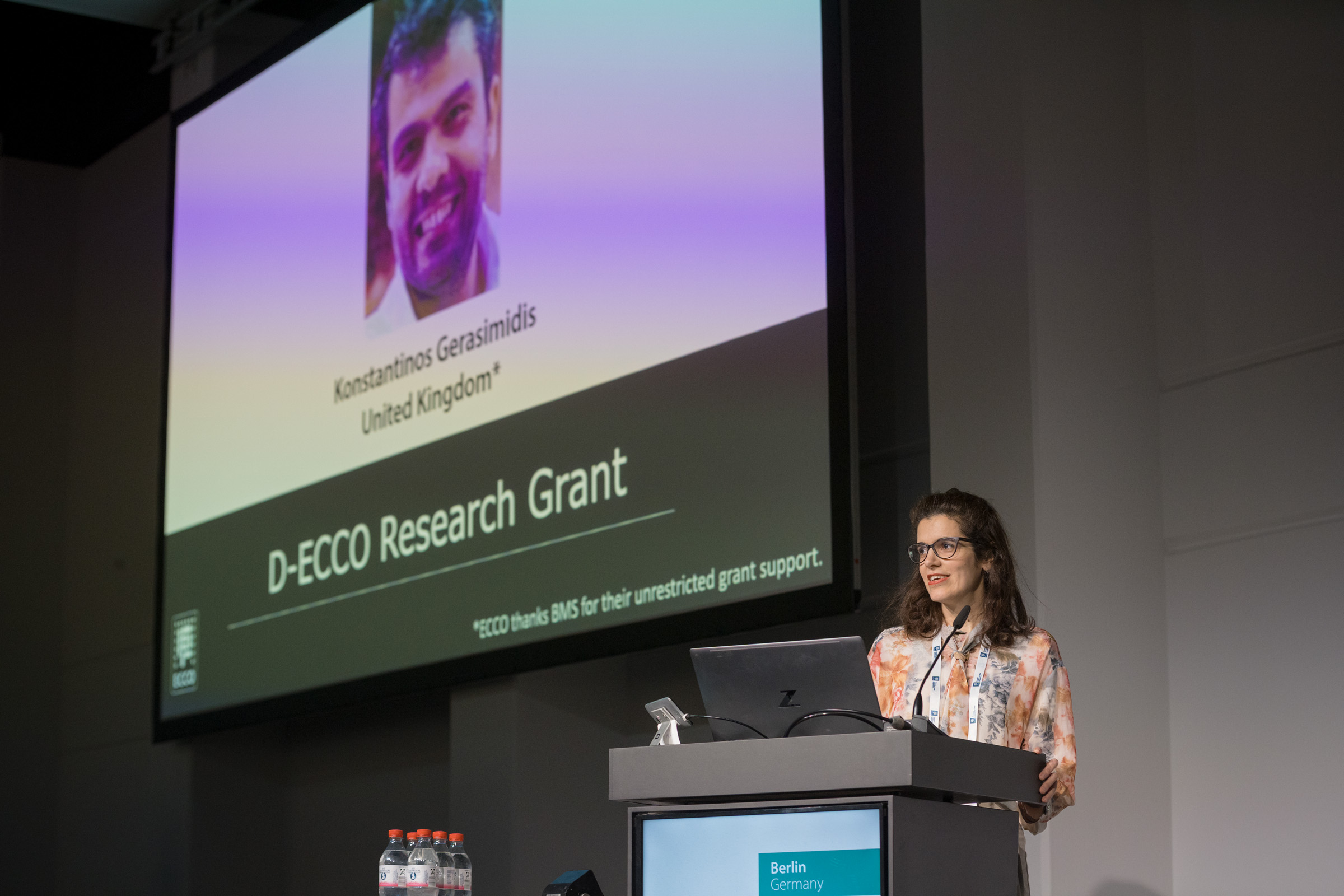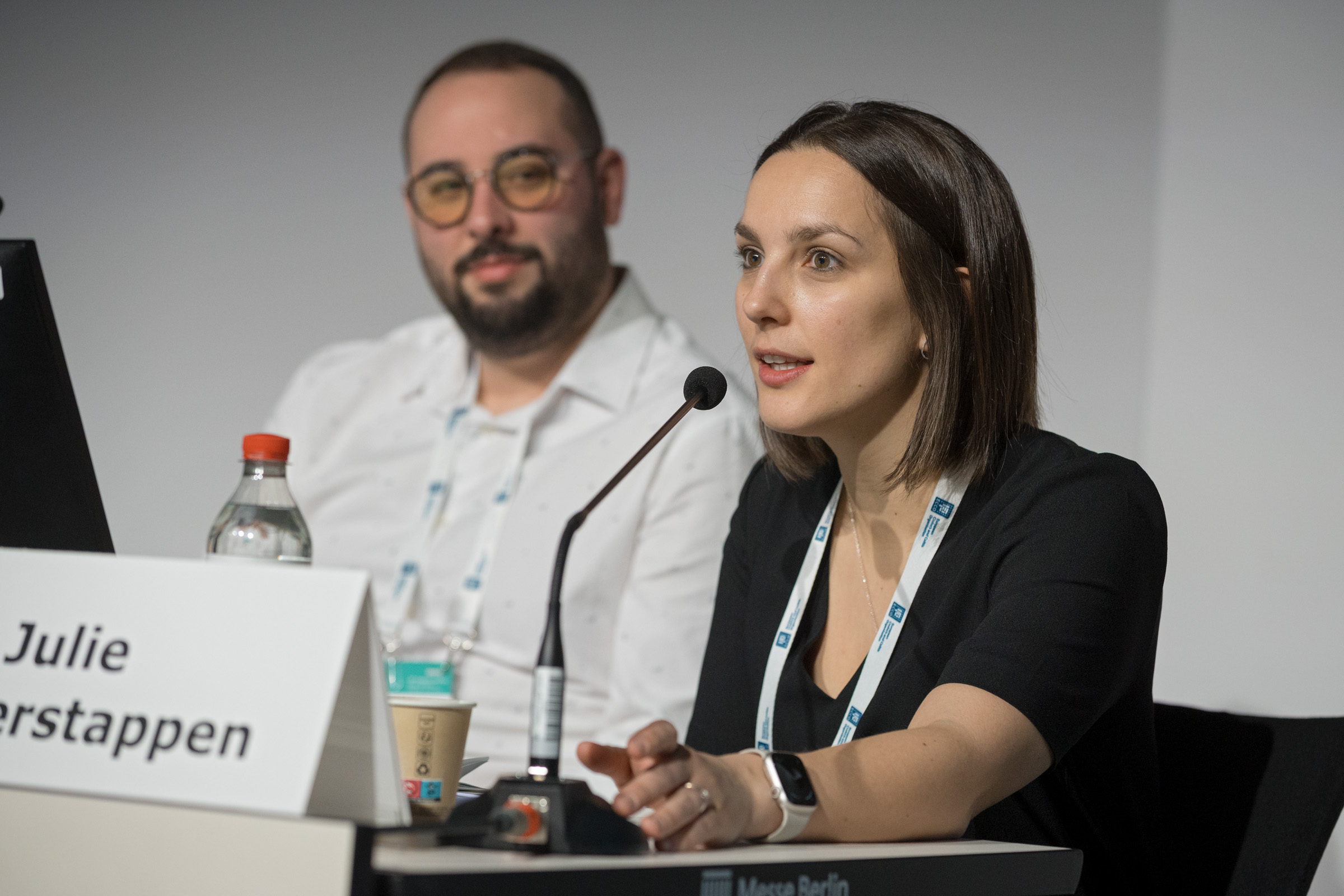Report on the 10th D-ECCO Workshop at ECCO'25
Chen Sarbagili Shabat, D-ECCO Committee Chair
 Chen Sarbagili Shabat Chen Sarbagili Shabat © ECCO |
We were in Berlin for the 10th D-ECCO Workshop! The workshop was full, with our largest attendance to date – 194 participants, including not only dietitians but also a great mix of specialists from all over the world. I, Chen Sarbagili (the Netherlands), opened the workshop by informing participants that the ECCO Consensus on Diet and Nutrition in IBD would be presented for the first time during this ECCO’s plenary session, as well as by presenting the various opportunities available to all IBD Dietitian Members, including the D-ECCO Grant and the D-ECCO Travel Award.
The first session, on “Food science: diet, gut and microbes”, opened with my presentation on diet and faecal microbiota transplantation (FMT) interaction. I highlighted that dietary interventions for both the donor and the recipient may enhance initial response rates and maintain long-term efficacy of FMT therapy [1]. In the following presentation, CK Yao (Australia) explored the complex question of whether “to fibre or not to fibre”. She emphasised that personalising fibre intake for each patient is key to effective treatment. Konstantinos Gkikas (UK) then presented a new era of research – personalised nutrition in IBD. He revealed that recent studies emphasise the importance of personalisation, e.g. the response to exclusive enteral nutrition appears to be influenced by both clinical and microbial characteristics [2], although we are not there yet. The session ended with an abstract presentation by Jessica A. Fitzpatrick (Australia), who shared the results of a pilot, double-blinded, randomised feeding trial investigating the effects of emulsifiers on disease activity in patients with Crohn’s Disease (CD). Interestingly, the study found that, in the context of a healthy diet, emulsifiers had no influence on disease activity [3].
The second session, on “Dietary management in IBD: novel approaches”, started with a presentation by Emma Halmos (Australia) on “ultra-processed foods (UPFs) – barriers to clinical practice”. She emphasised the challenges in assessing the individual role of UPFs, as they may also serve as a marker for the Western lifestyle [4]. Vaios Svolos (Greece) followed with a presentation on the applications of partial enteral nutrition in CD, highlighting its various uses: induction of remission, maintenance of remission, as an add-on therapy with biologics and as a pre-operative treatment. The final topic of the session, Acute Severe Ulcerative Colitis (UC), was addressed by Julie Vanderstappen (dietitian, Belgium) and Bram Verstockt (physician, Belgium). They emphasised that since this condition is life-threatening, neither medical nor nutritional optimisation should be delayed.
The final interactive session focused on diet throughout the lifespan. It began with the second D-ECCO abstract presentation by Luba Plotkin (Israel). She presented the results of the "TASTI-E" randomised controlled trial, which showed that a “tasty and healthy” diet improved persistent subclinical inflammation in paediatric patients with CD. Following this, Sara Sila (dietitian, Croatia) and Iva Hojsak (physician, Croatia) delivered an insightful tandem case presentation on paediatric growth in IBD. They emphasised how treatments can enhance growth and the crucial role of dietary support. Next, Alicia Sandall (UK) presented on nutritional considerations in elderly patients with IBD. She noted that this group is often under-researched despite comprising 25%–35% of the IBD population, and highlighted key practices for managing malnutrition in the elderly. The session concluded with an engaging panel discussion, featuring Alicia Sandall, Sara Sila, Iva Hojsak and Mark Samaan (physician, UK). Each panelist contributed valuable insights, fostering dynamic audience interaction and emphasising the importance of a multidisciplinary approach in adjusting treatment based on the patient’s lifespan.
The 10th D-ECCO Workshop was highly successful and provided a good overview of recent scientific and clinical aspects of dietary therapy in IBD.
The D-ECCO Committee would like to express gratitude to Emma Halmos, who is stepping down, for her invaluable contributions to D-ECCO, and to welcome our new D-ECCO Committee Member, Alice Day, a registered dietitian from Australia who is known for her high-impact research and extensive clinical practice experience. We thank all the speakers for their exciting presentations and all attendees for their invaluable interactive participation and provision of feedback, both live and on social media.
Hope to see you all next year in Stockholm!
References
- Leibovitzh H, Sarbagili Shabat C, Hirsch A, et al. Fecal transplantation for ulcerative colitis from diet conditioned donors followed by dietary intervention results in favorable gut microbial profile compared to fecal transplantation alone. J Crohns Colitis 2024;18:1606–14. doi:10.1093/ECCO-JCC/JJAE062.
- Gerasimidis K, Bertz M, Hanske L, et al. Decline in presumptively protective gut bacterial species and metabolites are paradoxically associated with disease improvement in pediatric Crohn’s disease during enteral nutrition. Inflamm Bowel Dis 2014;20:861–71. doi:10.1097/MIB.0000000000000023.
- Fitzpatrick JA, Gibson PR, Taylor KM, et al. Clinical trial: The effects of emulsifiers in the food supply on disease activity in Crohn’s disease: An exploratory double-blinded randomised feeding trial. Aliment Pharmacol Ther 2025;61:1276–89. doi:10.1111/APT.70041.
- Halmos EP, Godny L, Vanderstappen J, et al. Role of diet in prevention versus treatment of Crohn’s disease and ulcerative colitis. Frontline Gastroenterol 2024;15:247–57. doi:10.1136/FLGASTRO-2023-102417.
Pictures are subject to copyright © ECCO





